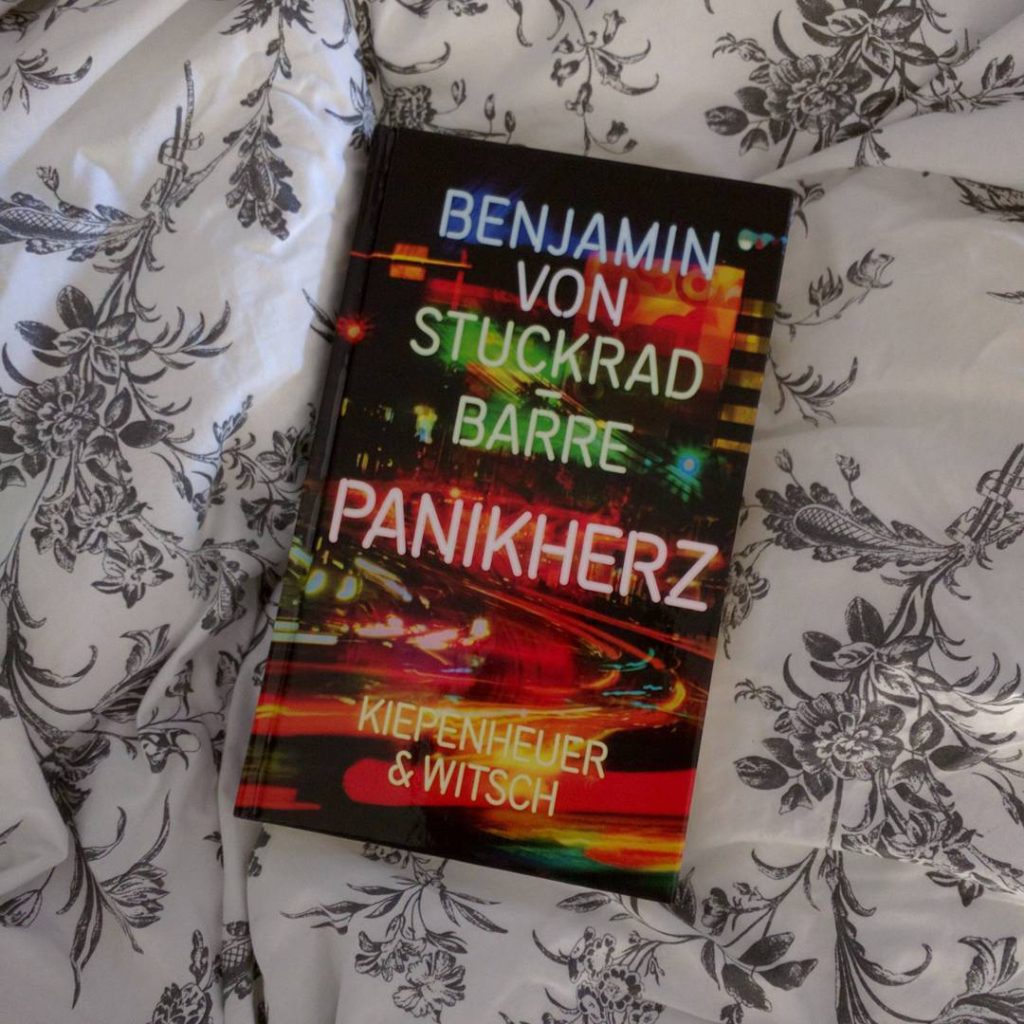Earlier this year, it was announced that German journalist/author/television moderator Benjamin von Stuckrad-Barre was be publishing a new book. I instantly became excited. The author had seemingly disappeared from the public eye, at least from my point of view. After his RBB television series Stuckrads Homestory finished airing in 2014, things seemed to get quiet. And it had been nearly six years since he published his last book, Auch Deutsche unter den Opfern, a collection of previously published newspaper articles. It was that book that had originally brought Stuckrad to my attention when he was on Deutsche Welle promoting it. You could, of course, count co-writing the script to 2012’s Zettl with director Helmut Dietl. Regardless, Panikherz is a new book from my favorite German author. I quickly pre-ordered it from Amazon.de.
Titled Panikherz, Stuckrad’s latest publication is a memoir. The book is written from the present with flashbacks interspersed. During that time out of the public eye, he left Berlin. Instead he moves to a guesthouse at the famed Chateau Maurmont in Los Angeles. There he spent a year to reflect and regather himself. In Panikherz, he recounts his struggles with drugs, alcohol, an eating disorder and his own insecurities.
A large part of the book is about friendship and childhood heroes. A devoted fan and later friend of German musician Udo Lindenberg, everything seems to revolve around the singer for Stuckrad. Any simple observation can trigger him to recall a lyric, no matter how obscure, to fit the scenario. He devotes pages to how his brother first introduced him to the singer and how they eventually became close friends. And seemingly any German he meets along his journey shares an affinity for Lindenberg. The two will then wax about the singer’s importance to them and compare notes on favorite songs.
Similarly, one of Stuckrad’s writing heroes is author Bret Easton Ellis. The author of American Psycho and Less Than Zero, Ellis makes several appearances as the pair meet up in LA. Stuckrad shows a somewhat less than positive view of Ellis although he doesn’t actively disparage him in the slightest.
Stuckrad’s struggles with addiction are the real focus of the book. The lengthy passages of his drug use and his eating disorder are upsetting to read but extremely moving. It is really a wonder that he survived given the lifestyle he led. He maintains the focused tunnel-view of a drug addict. Rarely does he journey with any depth into any aspects of his professional or personal life. Unless, of course, it is directly related to his chemical dependencies.
What I have always liked about Benjamin von Stuckrad-Barre’s writing is his style. He writes well and always infuses a sense of humor. It’s challenging enough to a student of the German language, like myself, but entertaining enough to make the struggle worthwhile. He writes in Panikherz not seeking your sympathy, but simply exercising his demons in a brave display of honesty. Indeed, the book is not difficult to read because of the writing but because of the content.
Panikherz
by Benjamin von Stuckrad-Barre
Kiepenheuer und Witsch 2016
This post contains affiliate links.
